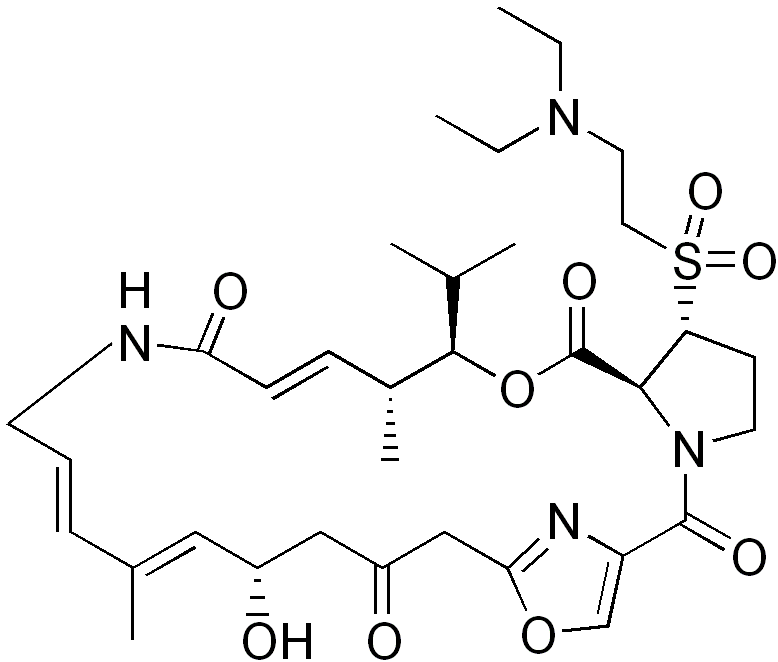| drug name | Quinupristin-Dalfopristin |
| classification | Antibiotic, Synergistic Streptogramin |
| pharmacokinetics | | absorption | Poorly absorbed orally, administered intravenously. | | distribution | Distributes into tissues and fluids, including lung tissue, bone marrow, and abscesses. Protein binding is high. | | metabolism | Metabolized to inactive metabolites. Primarily excreted in the urine. | | elimination | Elimination half-life varies depending on dose and renal function. |
|
| suggested dosage | | description | Dosage is highly individualized and dependent on the severity and type of infection. Consult with a healthcare professional for appropriate dosage. | | note | Requires careful monitoring of renal function. |
|
| indications | | 1 | Severe infections caused by susceptible Gram-positive bacteria, particularly in patients who have failed other treatments. | | 2 | Examples: complicated skin and soft tissue infections, bacteremia, pneumonia. |
|
| safety pregnancy | Use during pregnancy should only be considered if the potential benefit outweighs the potential risk. Limited data available, consult with a specialist. |
| safety breastfeeding | It is not known if quinpristin-dalfopristin is excreted in human milk. Should be used with caution, and potentially avoided. |
| side effects | | 1 | Nephrotoxicity (kidney damage) | | 2 | Myocardial (heart) toxicity | | 3 | Ototoxicity (ear) | | 4 | Neurotoxicity | | 5 | Hepatotoxicity (liver) | | 6 | Fever | | 7 | Nausea | | 8 | Vomiting | | 9 | Diarrhea | | 10 | Elevated liver enzymes | | 11 | Phlebitis (inflammation of the vein at the IV site) | | 12 | Thrombophlebitis (blood clot with inflammation in the vein at the IV site) | | 13 | Injection site pain |
|
| alternatives | |
| contraindications | | 1 | Hypersensitivity to quinpristin or dalfopristin | | 2 | Severe renal impairment |
|
| interactions | | 1 | May potentiate nephrotoxicity when given with other nephrotoxic drugs. | | 2 | May affect the metabolism of other drugs. |
|
| warnings and precautions | | 1 | Close monitoring of renal function is crucial, especially in patients with pre-existing kidney problems. | | 2 | Careful monitoring of cardiac function is recommended. | | 3 | Use in combination with other drugs requires careful evaluation and monitoring. | | 4 | Patients with history of heart problems or kidney disease should be closely monitored. | | 5 | Infusion-related reactions are possible. | | 6 | Dosage adjustments might be needed based on individual patient factors. |
|
| additional information | | patient age | 25 years | | patient weight | 70 kg | | important notes | For a patient aged 25 years, and 70 kg, the usual precautions regarding renal and hepatic function apply. | | specific considerations | Given the patient's young age and normal weight, the usual clinical considerations regarding dosages apply. | | expert advice | This information is intended for general knowledge and does not substitute for professional medical advice. Always consult with a qualified healthcare professional for diagnosis and treatment. |
|
